Are you ready to take your project's budget to the next level? In today's competitive landscape, securing budget approval can make all the difference in achieving your goals. Understanding the key elements and strategies for effectively presenting your case is essential. Join us as we delve into the nuts and bolts of crafting an engaging letter for consulting budget approval that captures attention and increases your chances of success.

Clear budget breakdown
A clear budget breakdown for consulting services includes detailed line items such as hourly rates for consultants, project management fees, travel expenses, materials costs, and additional miscellaneous expenses. For example, hourly rates could be specified at $150 per hour for senior consultants, $100 per hour for junior consultants, and estimated project management fees might total $2,000 for the duration of the project. Travel expenses might be estimated at $500 for transportation and accommodation. Materials costs could involve $300 for reports and resources needed throughout the consultation. The total budget should be clearly summarized, ensuring transparency and accountability for each allocated cost, allowing stakeholders to understand the financial requirements fully.
Justification for expenses
A comprehensive consulting budget approval request outlines the necessity of expenses such as hourly rates for expert consultants, travel costs for on-site evaluations, and materials for analysis in significant projects. Consulting services can enhance operational efficiency, provide specialized skills, and implement streamlined strategies that lead to cost savings. For instance, hiring a financial consultant at $150 per hour can yield insights that save a company thousands in operational inefficiencies. Travel expenses, averaging $800 per trip to locations like New York or Los Angeles, are required to engage directly with stakeholders for effective project implementation. Additionally, the cost of research materials, projected at $300, supports informed decision-making that aligns with industry standards and client expectations. Justification for these expenses emphasizes the return on investment and long-term benefits to organizational growth and sustainability.
Alignment with strategic goals
Consulting budgets require alignment with strategic goals to ensure effective resource allocation and maximize return on investment. A well-defined budget should reflect the organization's vision, highlighting key initiatives such as market expansion (targeting 15% growth over the next fiscal year), operational efficiency (reducing costs by 10% through streamlined processes), and talent development (investing in training programs for 100 employees). Each line item within the budget should connect to measurable objectives and outcomes, demonstrating how consulting services will facilitate progress toward broader company goals. Additionally, success metrics, such as client satisfaction ratings (aiming for an 85% positive feedback rate), should be established to assess the impact of consulting engagements on strategic endeavors. This comprehensive approach to budgeting will ensure alignment with overarching priorities, driving the organization forward.
Impact analysis and ROI
Consulting budget approval for impact analysis and return on investment (ROI) involves assessing financial implications and potential benefits of proposed projects. A detailed breakdown includes projected costs, such as professional fees (averaging $150 to $300 per hour) for consultants specializing in market analysis and strategy development. Comprehensive impact analysis, incorporating market trends and empirical data, is essential. Key performance indicators (KPIs) target revenue growth (aiming for a 15% increase annually) and cost savings (projected at 10% reduction from operational efficiencies). ROI calculations highlight anticipated gains against initial investments, proposing a timeline (typically 6 to 12 months) for realizing financial benefits. Engaging reputable consulting firms with proven track records, such as McKinsey & Company or Boston Consulting Group, enhances credibility and effectiveness.
Deadline for approval and implementation timeline
Consulting budgets require careful planning and clear timelines to ensure approval and implementation. The proposed budget outlines various expenses related to the consulting services, including personnel costs, travel expenditures, and resource allocation. The deadline for budget approval is set for November 15, 2023, allowing for necessary adjustments and finalization. Following approval, the implementation timeline schedules activities to commence by December 1, 2023, ensuring that all consulting tasks align with the project goals and deliverables. This structured approach facilitates effective oversight and timely execution of the planned initiatives.
Letter Template For Consulting Budget Approval Samples
Letter template of consulting budget justification for stakeholder presentation
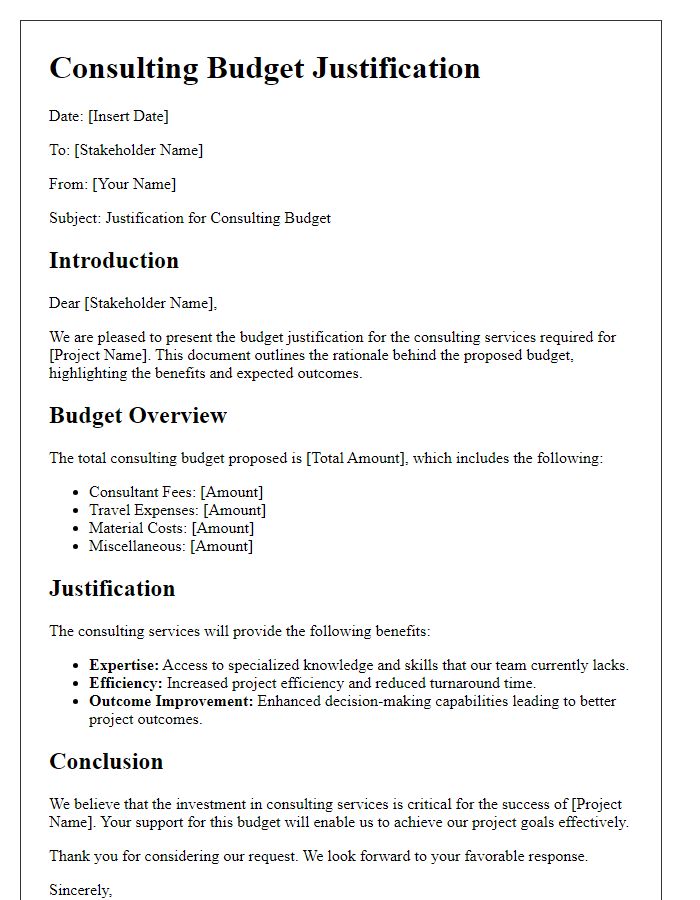

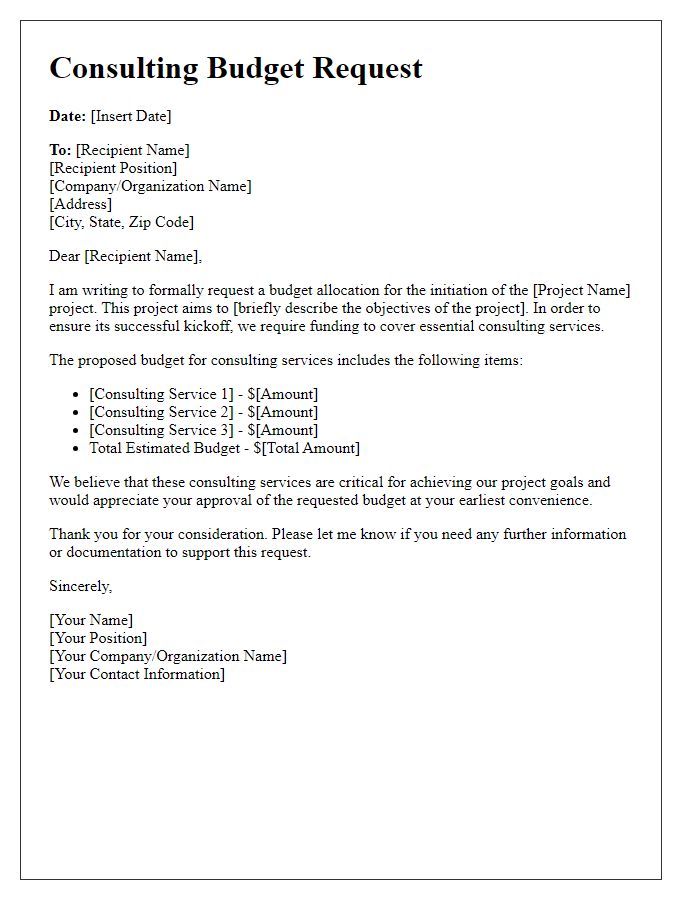
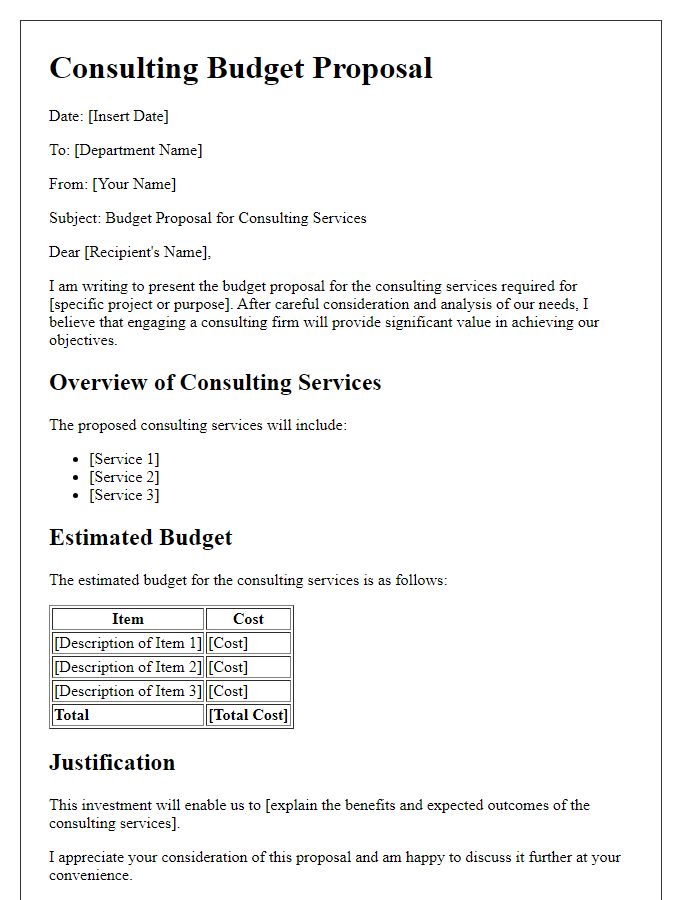
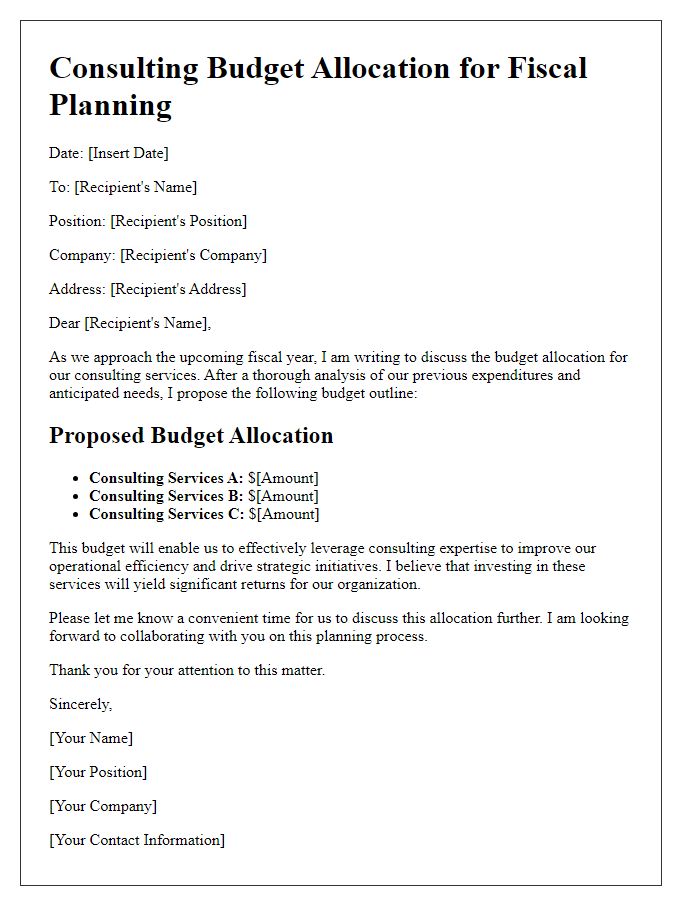
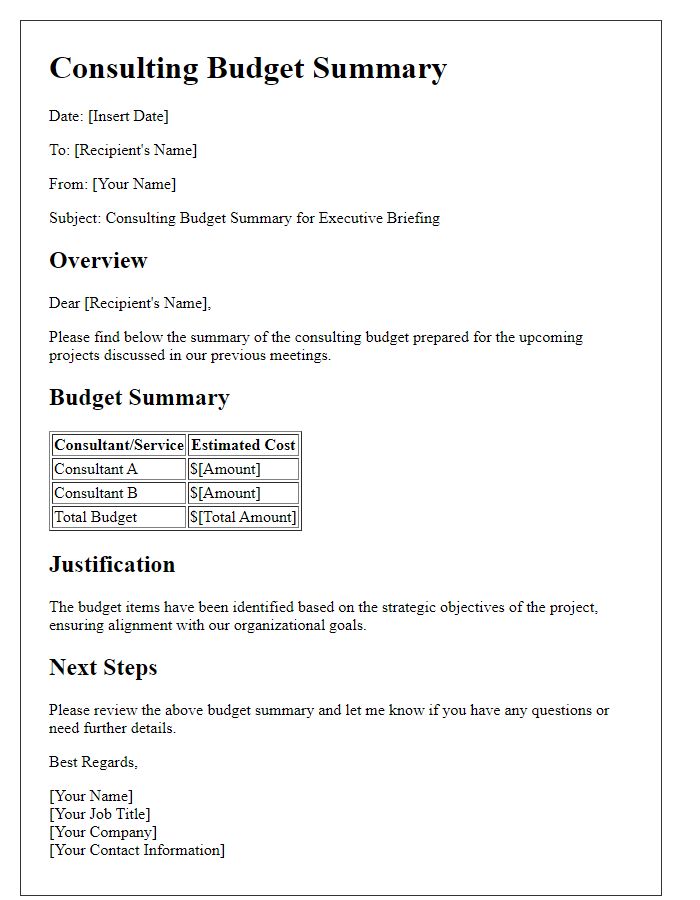
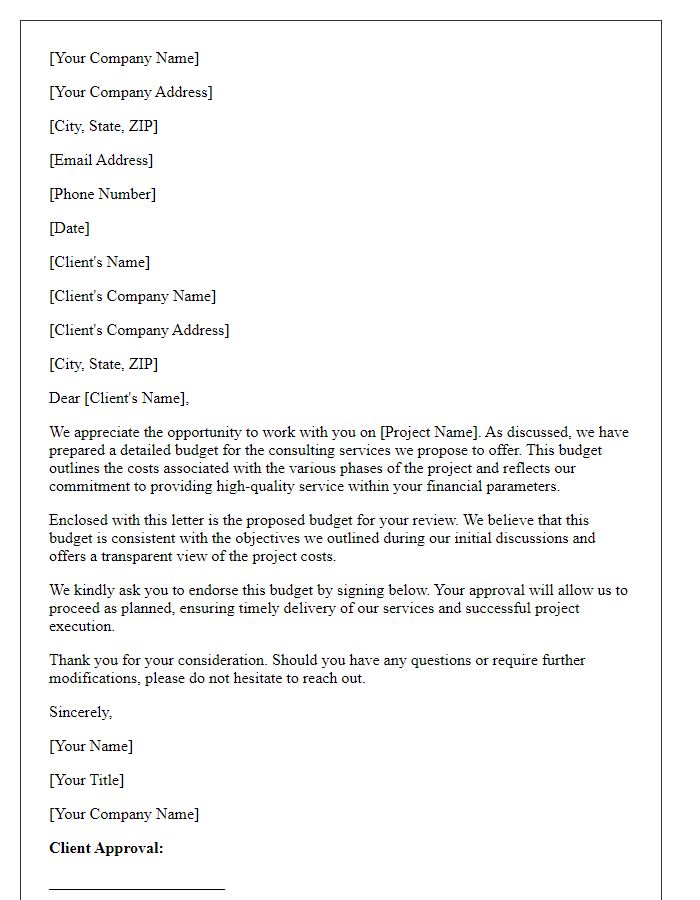
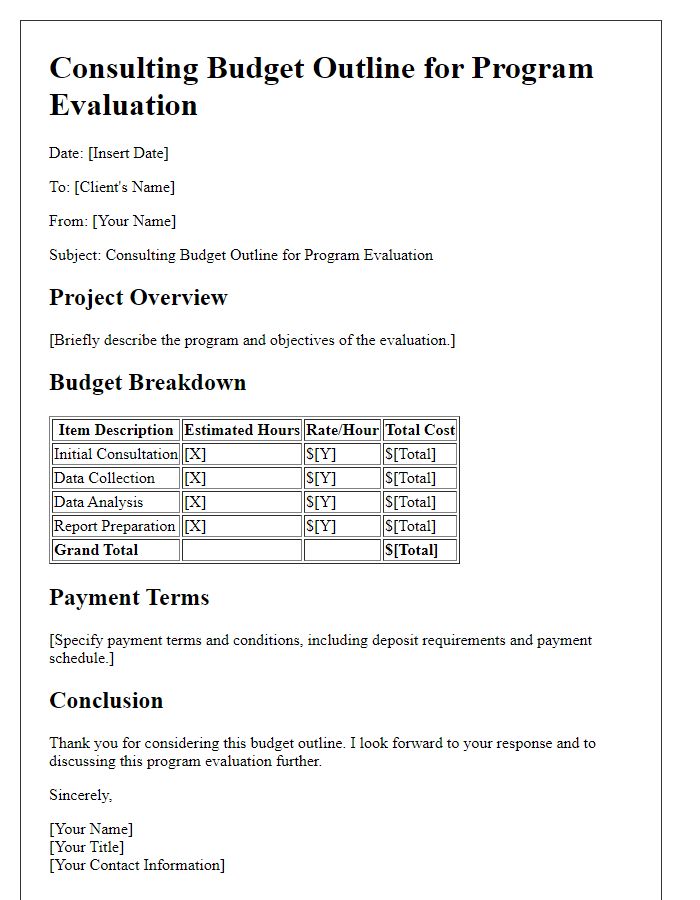
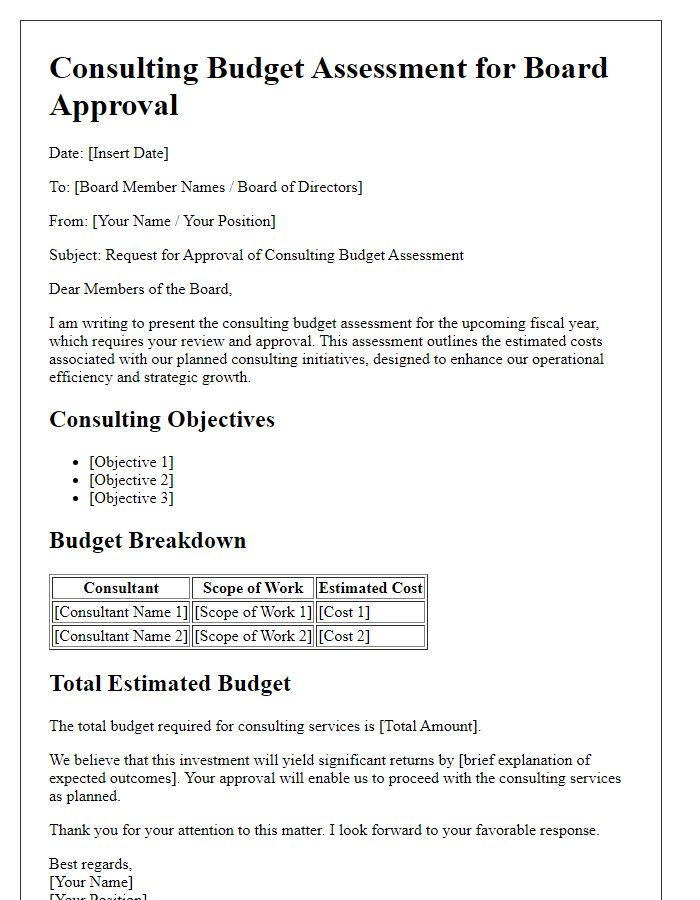
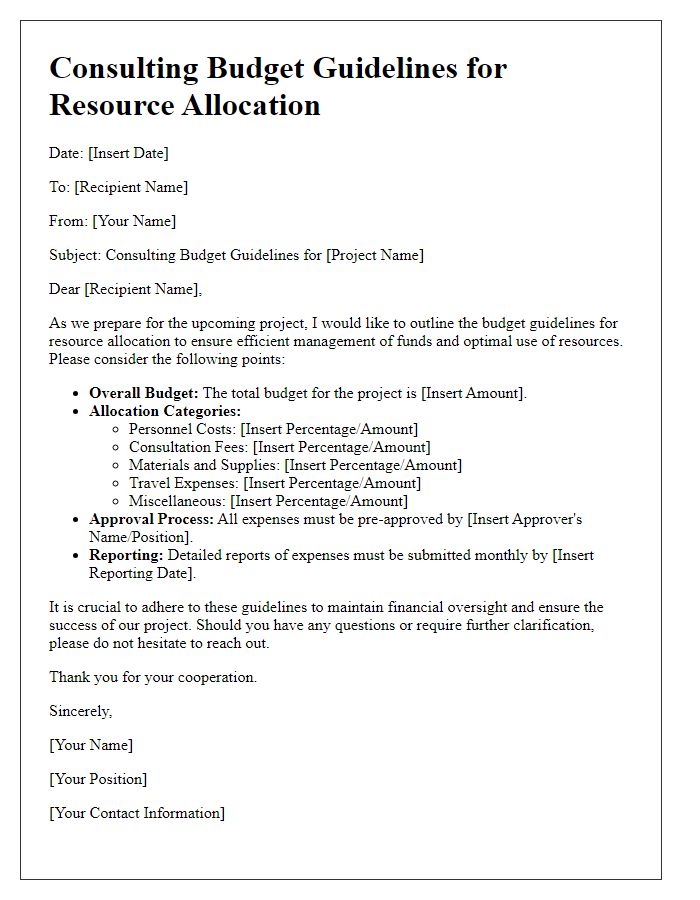
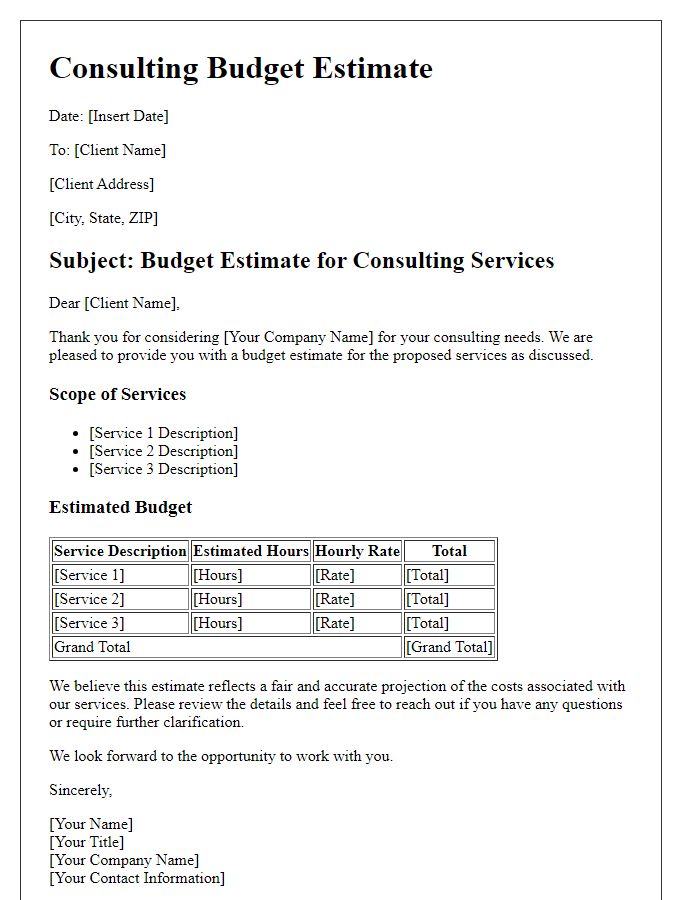


Comments